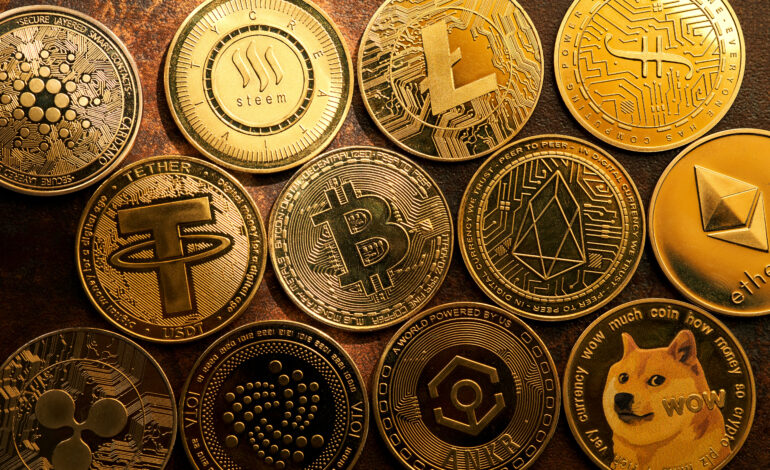
Introduction
The US-Saudi petrodollar agreement dates back to the 1970s and forms one of the core tenets upon which the modern world financial system was based. It was at this time that the OPEC nations, led by Saudi Arabia, pegged their oil to the US dollar, an agreement that helped in great measure to boost the status of the dollar as the leading global reserve currency. However, geopolitical re-alignments, economic policies, and the global energy revolution are just but signs that are beginning to point at the viability of this multi-decade-old agreement. Many people are watching these events unfold; if this were to change, then Bitcoin would stand to benefit enormously.
The Petrodollar System: In More Detail
The petrodollar system began in 1973 with the collapse of the Bretton Woods Agreement that pegged the US dollar to gold. Instead, that year the US closed an agreement with Saudi Arabia to price oil sales in dollars. The pact would guarantee high demand for the dollar and thus secure its position in international trade and finance. In return, the US formed its relationship with Saudi Arabia, cementing itself as a major strategic partner in the Middle East by providing the kingdom with military and monetary support.
Why the Petrodollar Depreciated:
1. Geopolitical Realignment
Over recent years, all have watched the realignment of global alliances. Saudi Arabia and other Gulf companies have been getting cosier with China and Russia who are very keen to reduce their reliance on the US dollar. These are the two new alliances which could go down the line of pricing oil in a different currency which then would quickly topple the petrodollar system.
2. Economic Diversification by
Saudi Arabia’s Vision 2030 is a roadmap to a diversified economy away from dependence on oil. In diversifying into other economic sectors, the dependence on the dollar will be less and therefore the possibility of other international money being chosen to be used in international transactions.
3. Rise Of Renewable Energy
The shift to renewable energy sources globally at the expense of the strategic role of oil: As countries invest in solar, wind, and other renewables, the hold that oil markets have on global finance weakens, which in turn further weakens the petrodollar framework.
4. US Monetary Policy
What this comes down to for many is that such aggressive monetary policies by the US-including quantitative easing and massive stimulus packages-make the long-term stability of the dollar highly questionable. Large US-dollar-denominated reserves are struggling to find ways to hedge against such devaluation.
Bitcoin: The New Safe Haven?
1. Decentralization and Trust
It operates on a decentralized network, independent of government control or interference. This is appealing for countries and individuals alike looking for an alternative to traditional financial systems based on the backbone of the US dollar.
2. Hedge Against Inflation
To the extent that some even refer to Bitcoin as “digital gold,” considering the supply of Bitcoin is capped at 21 million coins. In an environment where fiat currency is desperate under pressure from a sudden increase in inflation, Bitcoin then plays a protective role against devaluation and attracts individual investors and even nations for their reserve needs.
3. Growing Adoption and Institutional Support
Over time, Bitcoin is increasingly getting adopted; therefore, institutional investors, companies, and increasingly governments have become more tolerable of the same. All this increases the legitimacy and, therefore, its prospect as a global reserve asset.
4. Security and Transparency
The security of Bitcoin is provided because its hallmark transactions are transparent as well as recorded on an immutable blockchain, meaning that all transactions cannot be changed. The technology engenders and ensures trust, thereby minimizing the prevalent fraud risk of Bitcoin as a valuable and guaranteed store of value and as a medium of exchange.
Potential Scenarios and Implications
1. Diversified Reserves
They would begin diversification by adding Bitcoin to the repository of gold and foreign currency that already exists. This would reduce the importance of the dollar in countries with larger reserves and raise portfolio-level importance for Bitcoin.
2.Financial Inclusion
It could even serve for inclusion of a class of people in the less developed parts of the world who, because of its decentralized nature, have been excluded from mainstream financial services. Wide usage in these areas could lead to increased economic activity and dependence on mainstream banking.
Conclusion
The end of the US-Saudi petrodollar deal is a whole new chapter in the general world financial system. What that fully means for its impact is yet to be seen, but in one area at least, it is quite positive: that of Bitcoin. Decentralized, secure, and deflationary, it is considered a store of value for all alternative fiat currencies. Thus promising does Bitcoin look to feature in the future of global finance as the world launches into these changes.





